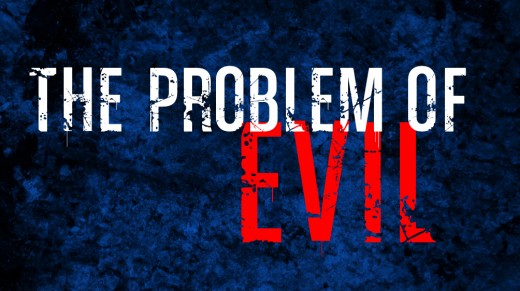Philosophy: The problem of evil

Do think that the problem of evil does or does not "kill" the concept of god
Here is my A level Philosophy essay on evaluating the problem of evil. This essay got an A grade. Enjoy!!
Essay
The problem of evil is a question for many of those with religious beliefs, and one that deters many from the ideas of religion and the belief of god, it is also one of the most used arguments against god. In this essay I will explain and evaluate its argument against a gods existance.
The bible states god as Omnipotent, Omniscient, omnipresent and all loving. If all of these are true then there is no way that god can let suffering exist in the world. If he was all loving he would want to stop evil, and being all powerfull and everywhere means that he has the means to this if he wants. This argument at first seems to pretty much illiminate the possibility of god. Christians often pride themselves and there religion in its idea's of acceptance and kindness toward mankind, the question of evil seems to attack these ideals which are at the core of their religion.
However there are counterarguments against the problem of the evil. One of these arguments is the free will argument. God states that he gave us free will, this free will allows us to commit evil if we want to, this ability to commit evil is less of an overall evil than not being able to have free will in the first place. This argument however only covers the problem of evil when talking about moral evil. Our free will can't affect Natural disasters such as tsunamis or earthquakes which cause significant harm and devastation. The only way that the free will argument can covert that is by saying that these natural objects also have free will to do what they want, and cause the evil they do.
Augustine attempted to explain the problem of evil while still allowing for god by saying. That after Adam and Eve ate the apple we are all being punished still for it with evil (like girls having the pain of childbirth as said in the bible). This argument itself is floored in many ways because it seems very unfair and not like the acts of an all caring god to carry on punishing everyone especially after his son died for our sins.
Another common argument to explain the problem of evil is called the soul making argument. This argument says that without evil we wouldn't know what good is (which seems like a very vaild argument if you look at my rationalist hub), and that god has given us evil so we have the opportunity to prove ourselves as good or bad and thus be able to differentiate between who goes to heaven and hell. This would work if evil was evenly spread out, however it isn't. Some may go through their life with no real hardships, while others may have nothing but (Those who are born into famines in Africa for example). Also do wee need the amount of evil we have in the world to appreciate good, could we do that with less?
In conclusion the problem of evil seems very solid against god and it does prove a very valid argument, Its far from being conclusive and faultless and does have valid arguments against it. I personally don't believe in god so to me the counterarguments to the problem of evil arn't as convincing, however since we have no proof of either side of the argument for or against the existence of god then it is completely up to your opinion on what you believe, and how valid you find the arguments brought by the problem of evil.
Hope you found this Hub interesting, if you did then please click on my profile to read more philosophy articles.
Thanks Luke








